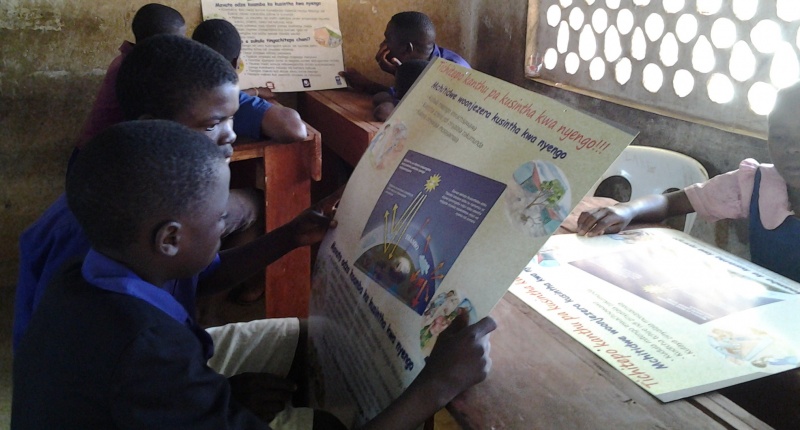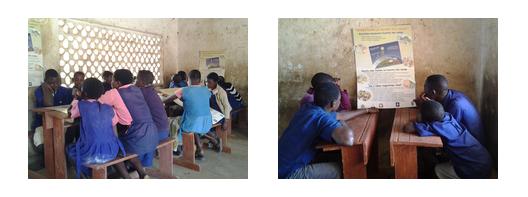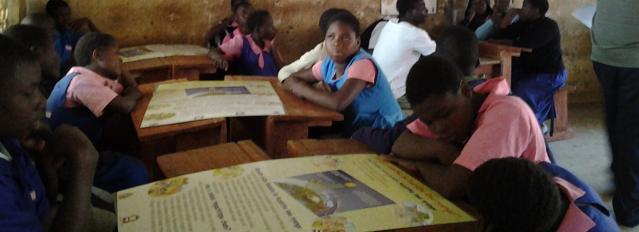In order to promote integration of climate change knowledge, skills and attitudes into the primary school curriculum of Malawi, the Malawi Institute of Education (MIE) in collaboration with the Ministry of Environment and Climate Change Management produced a poster centred on the message Climate change is real. Act now!. This poster aims to raise children’s awareness and is developed as part of the national UN CC:Learn pilot project, with support from the United Nations Development Programme (UNDP).

The poster was first designed during a workshop attended by 12 professionals from the Malawi Institute for Education, the Environmental Affairs Department, the Ministry of Education, Science and Technology and the Ministry of Economic Planning and Development, in Liwonde, Malawi. It was then field tested in 15 primary schools covering the districts of Zomba, Machinga and Balaka. Both urban and rural primary schools were targeted for the exercise. A total of 377 learners (193 male and 184 female) and a total of 59 teachers (32 male and 27 female) participated in the pilot exercise. This second phase of the project showed that the poster was generally effective in terms of clarity of content, and student and teacher comments were helpful in enhancing it even further. The entire activity was conducted from 15 to 26 July 2013.

The poster comprises three sections: 1) human activities that influence climate change, 2) negative effects and impacts of climate change, and 3) learner actions. Pictures were drawn to illustrate all the three sections of the poster. It will be printed in both English and Chichewa and sent to about 6000 public primary schools, 400 Teacher Development Centres, 7 public Teacher Training Colleges and other relevant offices and institutions.
The use of a poster to teach children climate change issues is quite consistent with the understanding that most children tend to learn better when their learning is designed in a more carefree and less stressful manner. It also underscores the common knowledge that children are naturally inquisitive and like learning and exploring new things in less formal learning settings.

